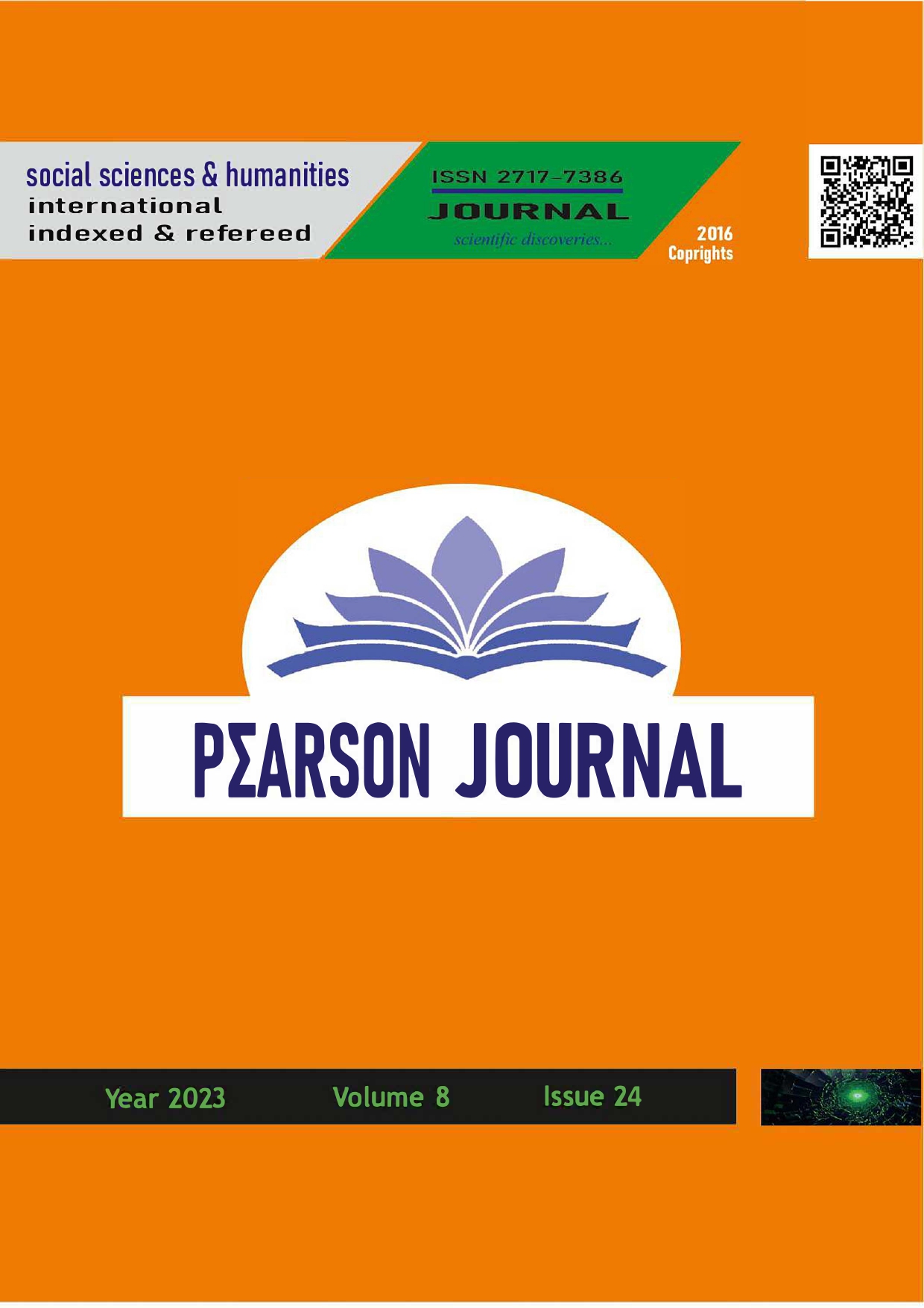Stimulus Deficiency and Autism in Child Development
DOI:
https://doi.org/10.5281/zenodo.8077520Keywords:
Stimulus Deficit, Autism, Child DevelopmentAbstract
Developmental issues in children are brought on by stimulus deficit, a condition that results from the inability to receive stimuli that should be received through the senses from the earliest moments of life. In order for the brain to develop and mature functionally and functionally, it needs sensory stimulus inputs. When these inputs are lacking, the brain experiences functional and functional issues. Despite the fact that DSM 5 does not recognize stimulus insufficiency as a diagnostic, psychiatrists claim that it is the root of many developmental issues. Autism is the diagnosis that stimuli deficit is most frequently confused with. Due to the similarity of autism and stimulus deficiency symptoms, children can be directly diagnosed with autism at the diagnosis stage. When children with autism receive environmental stimuli at the required level, although their development is positively affected, the diagnosis of autism does not disappear. However, when children with typical development are exposed to the necessary amount of environmental stimuli, their development can proceed as usual. Therefore, autism and stimulus deficiency are two different areas that need to be clearly differentiated. Even if stimulus deficiency is not a recognized diagnosis, it should still be assessed using unique scales and assessment instruments.
References
Bishop, D. V. M. (2000). How Does the Brain Learn Language? Insights From the Study of Children with and Without Language Impairment. Developmental Medicine & Child Neurology, 42(2):133-142.
Cabral, T. I., Pereira da Silva, L. G., Simoes Martinez, C. M. ve Tudella, E. (2016). Analysis of Sensory Processing in Preterm Infants. Early Human Development, 103, 77-81.
Cioni, G., Inguaggiato, E. ve Sgandurra, G. (2016). Early Intervention in Neurodevelopmental Disorders: Underlying Neural Mechanisms. Developmental Medicine & Child Neurology, 58, 61-66.
Fuller, E. A. ve Kaiser, A. P. (2020). The Effects of Early Intervention on Social Communication Outcomes for Children with Autism Spectrum Disorder: A Meta-Analysis. Journal of Autism and Developmental Disorders, 50:1683-1700.
Grubb, M. S. ve Thompson, I. D. (2004). The Influence of Early Experience on The Development of Sensory System. Current Opinion in Neurobiology, 14(4):503-512.
Hus, Y. ve Segal, O. (2022). Challenges Surrounding the Diagnosis of Autism in Children. Neuropsychiatric Disease and Treatment, 17:3509-3529.
Jerome, E. M. ve Liss, M. (2005). Relationships Between Sensory Processing Style, Adult Attachment and Coping. Personality and Individual Differences, 38(6):1341-1352.
Khan, F., Amatya, B., Galea, M. P., Gonzenbach, R. ve Kesselring, J. (2017). Neurorehabilitation: Applied Neuroplasticity. Journal of Neurology, 264, 603-615.
Kral, A., Hartmann, R., Tillein, J., Heid, S. ve Klinke, R. (2002). Hearing After Congenital Deafness: Central Auditory Plasticity and Sensory Deprivation. Cerebral Cortex, 12(8):797-807.
Lane, S. J., Mailloux, Z., Schoen, S., Bundy, A., May Benson, T. A., Parham, L. D., Roley, S. S. ve Schaaf, R. C. (2019). Neural Foundations of Ayres Sensory Integration. Brain Sciences, 9(7):153-167.
McLaughlin, K. A., Sheridan, M. A. ve Nelson, C. A. (2017). Neglect as a Violation of Species-Experience: Neurodevelopmental Consequences. Biological Psychiatry, 82(7), 462-471.
Rodrigues, P. F. S. ve Pandeirada, J. N. S. (2018). When Visual Stimulation of the Surrounding Environment Affects Children’s Cognitive Performance. Journal of Experimental Child Psychology, 176:140-149.
Sani Bozkurt, S. ve Kesmen Özgür, H. (2021). Psikolojik Danışmanların 0-3 Yaş Otizm Spektrum Bozukluğu Tanısı Alan Çocuğa Sahip Ebeveynler ile Psikolojik Danışma Süreci Yeterliliklerine İlişkin Görüşleri. (Yüksek Lisans Tezi). Anadolu Üniversitesi, Eğitim Bilimleri Enstitüsü.
Sevgen, F. H. ve Altun, H. (2017). Çocuk ve Ergen Psikiyatri Polikliniğine Başvuran 0-5 Yaş Arası Çocukların Başvuru Şikayetleri ve Psikiyatrik Tanıları. Journal of Mood Disorders, 10(4), 484-491.
Shonkoff, J. P. ve Phillips, D. A. (eds) (200). From Neurons to Neighborhoods: The Science of Early Childhood Development. Committee on Integrating the Science of Early Childhood Development, National Research Council and Institute of Medicine. Washinton DC: National Academy Press.
Sidar, E. A. ve Öztop, D. B. (2017). Duyu Bütünleme Terapisi. Türkiye Klinikleri Çocuk Psikiyatrisi-Özel Konular, 3(2), 153-162.
Vandormael, C., Schoenhals, L., Hüppi, P. S., Filippa, M. ve Tolsa, C. B. (2019). Language in Preterm Born Children: Atypical Development and Effects of Early Interventions on Neuroplasticity. Neural Plasticity, 1-10.
Yung, T. W. (2021). Sensory Modulation: A Window to Sluggish Cognitive Tempo Symptoms Among Children. Current Developmental Disorders Reports, 8, 185-190.
Weyandt, L. L., Clarkin, C. M., Holding, E. Z., May, S. E., Marraccini, M. E., Gudmundsdottir, B. G., Shepard, E. ve Thompson, L. (2020).
Neuroplasticity in Children and Adolescents in Response to Treatmen Intervention: A Systematic Review of the Literature. Clinical and Translational Neuroscience, 4(2).
Downloads
Published
How to Cite
Issue
Section
License
Copyright (c) 2023 PEARSON JOURNAL

This work is licensed under a Creative Commons Attribution 4.0 International License.



